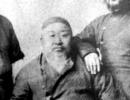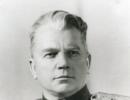Tennis player Natalia Zverev personal life. Zvereva Natalia: sports career and personal life
Famous Soviet and Belarusian tennis player. Honored Master of Sports of the USSR (1991). The first coach is Father Marat Nikolaevich Zverev.
Career
36 times played in the finals of the Grand Slam tournaments in singles, doubles and mixed doubles (1 + 31 + 4)
More often Zvereva (18 titles) in Grand Slam tournaments in doubles won only four in the history of women's tennis - Martina Navratilova (31), Pam Shriver (22), Margaret duPont (21) and Margaret Smith Court (19).
In 1992-93 she won 6 Grand Slams in a row in doubles (with Gigi Fernandez), winning the so-called "non-classical" Grand Slam in doubles.
In 1992-94, from Roland Garros-92 to Wimbledon-94, she won 9 of 10 Grand Slams in doubles (with Gigi Fernandez), losing only in the semi-finals of the US Open-93 to Sanchez-Vicario/Sukova.
Four times (1992, 1993, 1994, 1997) won 3 Grand Slam tournaments in doubles per season.
Three times (1995, 1997 and 1998) she played in all the finals of the Grand Slam tournaments of the season in doubles.
10 times in a row (1989-98) played in the final of Roland Garros in doubles.
Four times in a row won Roland Garros in pairs (1992-95).
Four consecutive Wimbledon doubles winners (1991-94).
She never managed to win the classic Grand Slam in doubles (all 4 tournaments in 1 season).
Bronze medalist at the 1992 Summer Olympics in doubles (with Leila Meskhi).
Participant of 4 Olympics - 1988, 1992, 1996 and 2000
Grand Slam wins (20)
Doubles (18)
Australian Open - 3 times: 1993, 1994, 1997
Roland Garros - 6 times: 1989, 1992, 1993, 1994, 1995, 1997
Wimbledon - 5 times: 1991, 1992, 1993, 1994, 1997
US Open - 4 times: 1991, 1992, 1995, 1996
Mixed doubles (2)
Australian Open - 2 times: 1990, 1995
The 1988 Roland Garros final between Steffi Graf and Natalia Zvereva was the shortest Grand Slam final in history. Graf won 6-0 6-0 in just 30 minutes for the entire match.
Natalya Maratovna "Natasha" Zvereva(born April 16, 1971 in Minsk, Belarusian SSR) - Soviet and Belarusian tennis player. Honored Master of Sports of the USSR (1991). The owner of the largest number of titles (20) at Grand Slam tournaments (in all categories) among tennis players from the ex-USSR. In 2010, she was included in the lists of the International Tennis Hall of Fame.
The first coach is Father Marat Nikolaevich Zverev.
Achievements
- She took first place in the women's doubles rating in the amount of 124 weeks, first rising to it on October 7, 1991 at the age of 20
- 36 Grand Slam finals in singles, doubles and mixed doubles (1 + 31 + 4). This is the highest figure among all tennis players from the former USSR.
- More often Zvereva (18 titles) in Grand Slam tournaments in women's doubles won only four in the history of tennis - Martina Navratilova (31), Pam Shriver (22), Margaret du Pont (21) and Margaret Smith Court (19).
- In 1992-1993, she won 6 Grand Slams in a row in doubles (with Gigi Fernandez), having won the so-called "non-classical" Grand Slam in doubles, but never managed to win a classic Grand Slam in doubles (all 4 tournaments in 1 season ).
- In 1992-1994, from Roland Garros 1992 to Wimbledon 1994, she won 9 out of 10 Grand Slam doubles tournaments (with Gigi Fernandez), losing only in the 1993 US Open semi-finals to the Sanchez-Vicario / Sukova pair.
- From Roland Garros 1991 to the Australian Open 1999 (eight full seasons) reached the final of 27 of the 32 Grand Slam tournaments in women's doubles, winning 17 of them
- Four times (1992, 1993, 1994, 1997) won 3 Grand Slam tournaments in doubles per season.
- Three times (1995, 1997 and 1998) she played in all the finals of the Grand Slam tournaments of the season in doubles.
- 10 times in a row(1989-1998) played in the final of Roland Garros in doubles.
- Four times in a row she won Roland Garros in pairs (1992-1995).
- Four times in a row won Wimbledon in pairs (1991-1994).
- Ranks 5th in Open Era history in WTA doubles tournament wins (80).
- Bronze medalist at the 1992 Summer Olympics in doubles (with Leila Meskhi).
- Participant of 4 Olympics - 1988, 1992, 1996 and 2000
- In 2010, Zvereva and Gigi Fernandez were included in the lists of the International Tennis Hall of Fame.
Career Grand Slam finals (36)
Wins (20)
Doubles (18)
- Australian Open - 3 times: 1993, 1994, 1997
- Roland Garros - 6 times: 1989, 1992, 1993, 1994, 1995, 1997
- Wimbledon - 5 times: 1991, 1992, 1993, 1994, 1997
- US Open - 4 times: 1991, 1992, 1995, 1996
Mixed doubles (2)
- Australian Open - 2 times: 1990, 1995
Losses (16)
Singles (1)
- Roland Garros: 1988
Doubles (13)
- Australian Open - 3 times: 1995, 1998, 1999
- Roland Garros - 4 times: 1990, 1991, 1996, 1998
- Wimbledon - 4 times: 1988, 1989, 1995, 1998
- US Open - 2 times: 1997, 1998
Mixed doubles (2)
- Wimbledon: 1991
- US Open: 1990
The 1988 Roland Garros final between Steffi Graf and Natalia Zvereva was the shortest Grand Slam final in history. Graf won 6:0 6:0, spending only 34 minutes for the whole match. Steffi Graf was the most uncomfortable opponent for Natalia Zvereva. Only once, at the end of Count's career, Zvereva was able to beat her. It happened at Wimbledon 1998, where Zvereva reached the semi-finals for the first time.
Natalia Zvereva. 20 Grand Slam trophies
April 16 marks the 40th anniversary of the famous Soviet tennis player Natalya Zvereva. She has won 84 trophies in her career and is considered one of the best doubles players of all time.
As big is seen from a distance, so is the whole scale of achievements Natalia Zvereva became clear only after almost 10 years after the end of her career. Almost simultaneously, she first entered the Russian Tennis Hall of Fame (at the end of 2009 in the Modern Masters category), and a couple of months later, into the international Hall of Fame.
Help "Chempionat.ru"
Natalya Maratovna Zvereva.
She was born on April 16, 1971.
Member of the Tennis Hall of Fame and the Russian Tennis Hall of Fame.
Career start: 1985. Completion of a career: 2003.
Height: 174 cm. Weight: 62 kg.
Prize money: $7,792,503
Singles - 4 titles.
Doubles - 80 titles.
Mixed category - 2 titles.
Grand Slam tournaments: 20 titles (18 in doubles, 2 in mixed doubles): Australian Open - 5 (1990 (m), 1993, 1994, 1995 (m), 1997), Roland Garros - 6 (1989, 1992, 1993, 1994, 1995, 1997), Wimbledon - 5 (1991, 1992, 1993, 1994, 1997), US Open - 4 (1991, 1992, 1995, 1996).
Bronze medal at the 1992 Olympics with Leyla Meskhi.
Finalist "Roland Garros" -1988 in singles.
Highest Singles Position: 5 (May 22, 1989)
Highest position in the doubles ranking: 1 (October 7, 1991). Was the first for 124 weeks.
It is curious that the leaders of this museum in the city of Newport in one year included the best doubles players of the 90s - Zvereva and Gigi Fernandez, as well as the famous male duet Mark Woodford / Todd Woodbridge. If the Woodies won 12 "helmets", then Natalia had exactly 1.5 times more of them - 14 out of 18 were obtained in a duet with Fernandez, two more with Larisa Savchenko and one with Pam Shriver and Martina Hingis.
Natalia teamed up with Gigi in 1992, having already won two helmets with Savchenko by that time and played in four more finals - an amazing result for a girl who had just turned 21 years old. In 1991, the famous Shriver, on her account in the 80s there were 20 wins in the pair combination at the Majors. On the first try, they conquered New York, but for Pam it was the last major success. She seemed to pass the baton to the young Zvereva, who was to dominate the new decade. It is curious that in the final-91 Shriver and Zvereva beat Savchenko and Jan Novotnu, and two years later, Natasha and Pam were already on opposite sides of the net in the decisive match - the Belarusian celebrated the victory.
After a short collaboration with Shriver, today's hero of the day began performing with another American - Beatriz Fernandez. Gigi, as she is called all over the world, had been playing by that time for almost 10 years, but excelled in only three “helmets”. However, their duet with Natalia immediately turned out to be strong: having just started performing together, they won six “majors” in a row, but, alas, three each in seasons 92 and 93. That is, they never got a full-fledged Grand Slam resigned. At the same time, the girls were close to him two more times: in 1994 and 1997, they consistently won the Australian Open, Roland Garros and Wimbledon, but they couldn’t put a full stop on the US Open. They turned out to be the strongest in New York four times, but only in those years when they no longer claimed the Grand Slam.
Natalia's most real chance was in 1997 - she played for the second time in all four finals, but in 1995 she and Fernandez lost in Australia, immediately losing hope of conquering four peaks. In season 97, Zvereva won in Melbourne with Martina Hingis, and then returned to Fernandez, with whom she became the strongest on the courts of Roland Garros and Wimbledon. If earlier Zvereva, after victories in Australia, France and England, stumbled in the USA in the semi-finals, then this time she managed to reach the final, but Lindsay Davenport and Yana Novotna did not allow Zvereva to conquer the summit. Davenport, who often met on the way of Natalia and whom she beat most often, became her partner in season '98. The union came out successful and unsuccessful at the same time: they played in five finals for two years, but they could not win. In all cases, Hingis was on the other side of the net, in 1999 the Swiss won along with Anna Kournikova.
If Kournikova became the first Russian swallow in the world tennis firmament, then Zvereva was and remains the most successful Soviet tennis player. At the end of her career, Natalia even managed to play a little with Anna and won with her in 2000 at a tournament in Hamburg, this was the penultimate title of the Belarusian in her career. The 80th anniversary victory came two years later with Martina Navratilova. A pair of Zvereva and Fernandez, in terms of the number of joint titles, was second only to the duet of Martina and Shriver - they won the Grand Slam tournaments 20 times. “In the 90s, Natalia and Gigi were without a doubt the best couple in the world,” says Pam. - Fernandez was at that time the best player at the net, she understood the game very well. Natalya with her top spins, dribble shots, unthinkable angles and candles could torture any opponents. They were so different and complemented each other so well, that's why their duet was incredibly strong."
Navratilova also always had great respect for Natalia: “Yes, I must admit that my pair with Pam was stronger, but our game was powerful, and Zverev and Fernandez were taken with grace and subtlety. I think that our achievements are quite comparable.” True, unlike Navratilova, Zvereva did not succeed too much in a single career. Although it all started great: at the age of 15, she won junior Wimbledon, and the next year she repeated her success.
Blitz (German tennis magazine, May 1998).
- Who is your most uncomfortable opponent?
- I think I'm on my own.
- What do you like to listen to the most?
- Any Led Zeppelin songs. You know, I'm not so young anymore.
- Who is your favorite actor or actress?
- I love Jack Nicholson. And not for the reason that I like older men!
- What three things will you take with you to a desert island?
- Water, food... and an amazing guy.
- What do you hate the most?
- People who hide their true selves and wear masks.
- What are your favorite hobbies in your free time?
- I like to cook, listen to music and read. Especially Russian classics.
- What are you most proud of?
- Winning Grand Slam tournaments.
- What would you have become if you had not chosen a career as a tennis player?
- I think I would be the biggest loser on earth in that case.
At the age of 17, Natalya reached the finals of the adult Roland Garros, but she didn’t manage to show herself there. In just half an hour, Steffi Graf won - 6:0, 6:0 in the shortest Grand Slam final in history. “I burned out. I don’t know why, I still can’t understand this, but I demanded too much from myself, and this responsibility crushed me, ”Natalya commented on that defeat.
She no longer managed to get to the decisive matches at the Majors. She excelled in four WTA tournaments of the middle hand and stumbled 11 more times in the finals. It was always easier for her to play in pairs: her partners helped her to believe in herself and not lose concentration, which often happened during singles. In singles, she was sometimes more dangerous when she lost: “I have a feeling that I play better when I concede. With an equal score, for some reason, I act too carefully and accurately. This style doesn't suit my tennis."
Zvereva was especially embarrassed when the Count appeared on the opposite side of the court. The German became her main rival throughout her career and won 20 out of 21 matches against her: “My coach said that when I played with her, I dragged an elephant behind my shoulders. At some point, I managed to lose it, but not all, but about half. But, you know, even half an elephant is hard.” The coach Natalia was talking about was Juan Nunez: “Since 1988, I have loved Natasha's game. Then I worked with Chris Evert and they met in Boston. I told Chris to go to the grid. She managed a wonderful shot, but Natasha from the corner of the court was able to deliver an incredible dribble left. She has always had amazing hands. Any coach wants to work with such a tennis player.” To 80 doubles and four singles trophies, she added two more in the mixed doubles - paired with Jim Pugh, Zvereva won the Australian Open - 90 and 95.
Now Natalia lives in Berlin and is raising her daughter, who was born in December 2009. She rarely gives interviews and appears even more rarely on the pages of newspapers or television screens. Zvereva herself in her free time likes to reread Dostoevsky, as well as watch The X-Files, The Shawshank Redemption and Pulp Fiction. People who know her personally say that Natalia has a difficult, but very fighting character, which helped her become a great champion. Since childhood, thanks to her father Marat, who also played tennis, she began to play this sport. Already towards the end of her career, Natalya admitted that she had no idea who she could have become if she had not chosen the profession of an athlete.
At the end of her career, she did not leave tennis and tried herself as the captain of the Federation Cup and the coach of the rising star of Belarus Anna Orlik. Just a few days ago, one of the achievements of Zvereva was repeated not by a rising, but by a real star - Victoria Azarenka. She became the fifth racket of the world, and today's hero of the day had the same rating at the peak of her career. Last year, Natalia returned to the court with Gigi Fernandez, playing in the veteran Roland Garros. Let's hope that we will see one of the best duets in the history of tennis again in a couple of months in the capital of France.
In the late 1980s - early 1990s, Natasha Zvereva was the main tennis star of the USSR, then the CIS. She won two dozen Grand Slam tournaments in doubles, played in the singles final of Roland Garros and won bronze at the 1992 Olympics in Barcelona, but retired from public space after her career ended. She does not give interviews and does not talk about her life, but she made an exception for it.
Brotherhood of the end. How the crumbling empire won
25 years ago, an indistinct CIS team without a flag and a tribe went to the Olympics in Barcelona. It was the end of the empire, and our special project is about it.
“Morozova said: “You are playing with Meskhi.” It must be so"
When did you learn that in Barcelona in doubles you will play not with Larisa Savchenko-Neyland, but with Leyla Meskhi?
- Shortly before departure directly to the Olympics. We didn't even have time to play at least a couple of tournaments to get a feel for each other's style.
- Weren't you surprised by this?
- Yes, there was no time to be surprised. Olga Vasilievna Morozova simply confronted the fact that the Zverev / Meskhi couple is performing at the Olympics. I didn’t have to choose, everything happened very quickly, I had to play from the sheet. It must be so. Larisa chose to speak for the newly independent Latvia.
- Have you prepared for Barcelona in any way?
- No, it was not possible because of the schedule. Of course, it would be optimal to come to Barcelona fresh and rested.
- With what thoughts did you go to the Olympics? Have you thought about medals?
- I am a person who lives only for today, so I did not make any plans. I prefer not to dream, but now to receive from life what it gives. It's been that way since childhood, and nothing has changed.
They tell me: “You once played tennis at the highest level.” Yes, she did. But as if she died and reincarnated into a completely different person.
- But you played really well.
- Once won the bronze, you can say so. After all, this is my only Olympic award, although I played at four Olympics.
- Which one do you remember the most?
- Of course, the first one is in Seoul. It was very bright and cool. For me then everything was new, I experienced very strong emotions. At the age of 17, I ended up in a completely new country for myself, where everything was beautiful and unusual. The Olympic village left unforgettable impressions.
Was it worse in Barcelona?
- A lot! Not so comfortable, not so cozy, not so tasty. And in Barcelona, if I don’t confuse anything, there was McDonald’s - this made me cringe all my life, but then especially. There was a feeling that this was not the good old Olympics, but something else. In general, in Seoul, everything was more compact.
How did you feel when you received the award?
- I was very worried that our team performed for the last time. I'm not talking about tennis, but in general. It was very bitter at the time and still bitter. It seems that you are standing on a pedestal not alone, with a partner, but the impression was, as if each on its own. We were also announced there as athletes of some incomprehensible artificially created country.

“The collapse of the country I experienced very hard. Everything inside is still shrinking.”
- After the end of the Olympics in Barcelona, did you have a desire to pair up with Savchenko-Neiland again?
- Not. Somehow it immediately cut off and that's it. I think she felt the same way. But this has nothing to do with the collapse of the country, there is a combination of circumstances and some kind of mood on which we parted. After that, Larisa and I did not communicate.
- And with Leila after the end of her career?
- Crossed paths a couple of times. She recalled the 1992 Games with great enthusiasm.
You were one of the first in Soviet sports who expressed disagreement with the fact that the USSR State Sports Committee takes almost all the prize money earned by athletes. Have you always had that rebellious spirit in you?
- Perhaps, at that time I had the right to say so. But now I will not criticize the Soviet system. Simply because a part of my soul still lives in the USSR. I suffered a lot and endured the collapse of the country, not to mention Soviet sports. Nostalgia is very strong. Sometimes I remember that time - and everything inside shrinks.
You once said that the Olympics mean more to you than any of the Grand Slams. Do you still hold this opinion?
- Undoubtedly. You see, I was a person of Soviet sports, and when I got to the Olympics, I played for my country. It's a completely different feeling than in other tournaments where you play for yourself. From the point of view of responsibility, from the point of view of the emotional level, nothing compares to the Olympic Games.
- When the USSR finally collapsed, did you have a choice which country to play for?
- I was not invited to Russia. But then in Russia, even without me, there was a very high level of tennis and a lot of strong players. I remember a couple of moments when I was invited to live, as it is fashionable to say, in foreign countries. But I would not go anywhere, because the USSR and Belarus, as a former part of a great country, are mine, my soul.
“I never tried to show another myself. Only the one that really exists"
From a certain stage in your career, you began to play without a coach. And how did you perceive coaching instructions in the national team?
- Yes, the coaches were nearby in the national team. But I always had a filter in my head. It doesn't matter what authority a person has, what matters is how right things he says. So, if such things came from the coaches, I always listened, and if not, I simply passed such information on deaf ears.
- Which of all the victories in your career was the most memorable?
I can't answer that question even if I try very hard. It was like in a past life that did not concern me. Everything merged into one stream. And not because there were a lot of them, but because it is very far from me and it doesn’t matter now.
I perfectly understand those who try to stay in the sport as long as possible. I didn't have to do that, thank God.
- You were the best double tennis player of the generation. Can we say that you pulled your partners to victories?
- Perhaps, in most cases it was like that and I became a “muse” in the team. But if you take a pair of Zverev / Gigi Fernandez, who won a lot of tournaments, then here it was she who was the leader. In terms of temperament and character, I could not surpass her in any way. And how we combined in terms of style and tactics on the court - there was a difficult mixed. It all depended on the person I was playing with.

Natalia Zvereva. 20 Grand Slam trophies
April 16 marks the 40th anniversary of the famous Soviet tennis player Natalya Zvereva. She has won 84 trophies in her career and is considered one of the best doubles players of all time.
- At some point in your career, you seem to have abandoned solo and focused on a couple. Is it really true?
- No, this was not and could not be. Without false modesty, I had a natural talent - for tennis. When the USSR collapsed with its obligatory sports camps, which made me terribly bored, I began to belong to myself and completely liberated. I could not train when I didn’t want to, I could not run some kind of cross-country, for example, and I never strained so much again, as in the days of the USSR. The routine was very stressful for me. And then I spread my wings and soared. But I never dropped anything. It’s just that I did better in pairs, so it seemed to many that I was cool in singles matches. But it wasn't.

“I played, but as if I died. And then reincarnated"
- Is your character in sports and in life the same?
- Yes, I never tried to show any other myself. Only the one that really is. I'm too specific. Tennis and sports in general are a thing of the past for me. I only contact a couple of people once every three years or even less often. They say to me: “You once played tennis at the highest level.” Yes, she did play. But it was as if I died after the end of my sports career and reincarnated into a completely different person.
- Were you afraid to end your career? Many athletes try to prolong it, fearing life outside of sports.
- Everyone has the right to do what he wants. Wants to play five more years - why not? Sport is a substance that is difficult to replace with something else. What else can be as full of impressions and emotions as big sport? I have many acquaintances who were completely at a loss, ending their active career: where to go, what to do? Some who are lucky become coaches and stay in the sport. This is all we know and can do. In general, I perfectly understand those who try to stay in sports as long as possible. I didn't have to do that, thank God. But it's really very difficult.
- Why don't you give interviews?
- First, it is not interesting to me. Secondly, most of me no longer remembers. Thirdly, I am a closed person and even during my active career I gave interviews extremely rarely and selectively. And then if you knew the journalist well. I have never been a media person.
- But now same we communicate?
- This is an exception. Once every 25 years.
“My mother told me about Serena’s pregnancy”
- Do you know anything about modern tennis?
- I don't know anything about it. But I have a rope that still connects with tennis. This is my mom. She tells me absolutely all the news, all the results worthy of attention. If she calls me and says that I need to turn on the TV and watch the match, after some clarifications and hesitation, I can do it.
Do you know about Serena Williams' pregnancy and Maria Sharapova's recent disqualification?
- My mother told me about Serena - she respects this athlete very much, her style of play, and then I became interested and found the details on the Internet. And there was news about Sharapova from every iron, they couldn’t get past me.
- Did they try to return you to tennis for administrative or coaching work?
- There were several attempts, but then they left me behind. I do not imagine myself in the role of an official - it will just kill me. I am a vulnerable, pure, creative person. Here's a coach, if circumstances turn out that way, I can be. But she is ready to work only with children.
“I’m glad my daughter doesn’t like sports”
- Could you train your own daughter?
- Not. Mia is even more creative than me. I don't want to take her childhood away from her and destroy her as a person. Sport is not creativity, especially at the beginning of a career. It's a scary and hard routine. Yes, she already said herself that she doesn’t want to play tennis, and she doesn’t like sports at all. For general development, I can teach her to hold a racket in her hands, but no more.
Are you glad she won't follow in your footsteps?
- Very! I give her almost complete freedom, 95 percent - she is an independent person. She moved to the second grade in a regular school, attends circles. Does what she likes.
I don't want to take away my daughter's childhood and destroy her as a person. For general development, I can teach her to hold a racket in her hands, but no more.
- For some time there were rumors that you moved to live in Germany.
- It was a long time ago and in another life. I live a full life in Minsk and enjoy it. The buzz continues.






